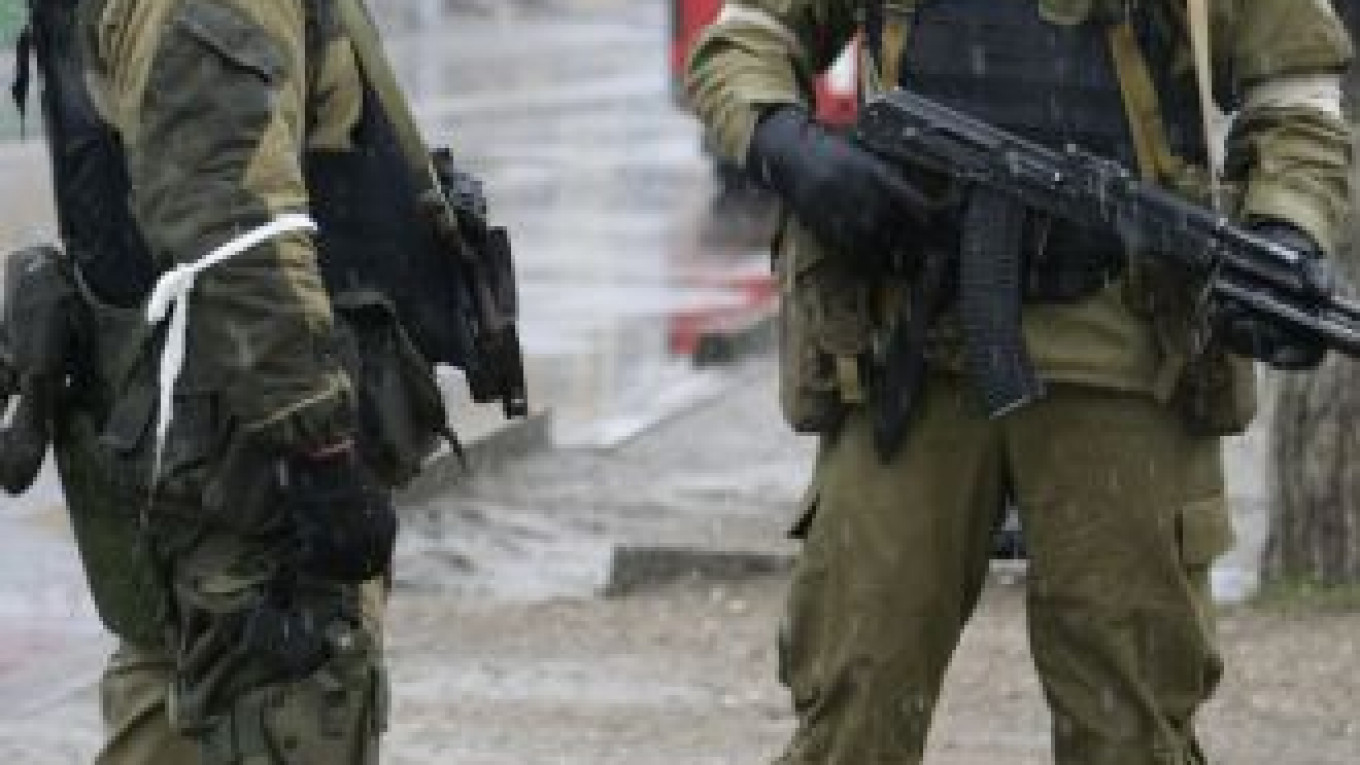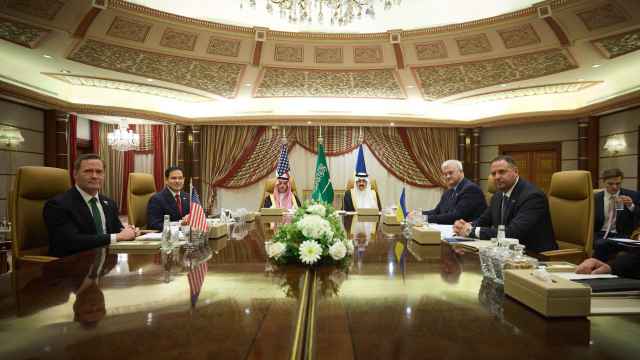The National Anti-Terrorism Committee on Tuesday announced that security forces had killed the leader of an insurgent group in Dagestan during one of three simultaneous operations carried out in the turbulent republic.
The alleged insurgent was identified as Eldar Magatov, who went by the nickname Saifullakh, and he was killed in the village of Zubutli-Miyatli in the district of Kizilyurt, the committee said in a statement on its website.
The raids, which also took place in the districts of Kizlyarsk and Khazavyurt, come amid reports of a police search for a potential female suicide bomber in the nearby Olympic city of Sochi, despite a heightened security regime in the area. Two other women were also reported as possible suicide bombers in the North Caucasus, though it was unclear if they had any connection to Tuesday's raids.
"After opening fire, the militant was killed. He has preliminarily been identified as Eldar Magatov, born in 1984, the head of an insurgent group in Babayurt. Until 2006, he was operating on the territory of Chechnya in Batayev's group," the committee said, apparently referring to convicted militant Islam Batayev.
Magatov had been in Dagestan, a predominantly Muslim province in Russia's North Caucasus that has been battling an Islamic insurgency since January 2011, the committee said. He was responsible for extorting money from various entrepreneurs — a practice that is common among members of the insurgency — as well as for organizing bombings and attempts on the lives of police officers, it said.
Residents said security services had restricted entry and departure from the village of Zubutli-Miyatli, news service Caucasian Knot reported, while the committee's statement said several residents had been evacuated as a precaution. Two women and two children were also freed from the house Magatov was hiding in before fire was exchanged.
A Message from The Moscow Times:
Dear readers,
We are facing unprecedented challenges. Russia's Prosecutor General's Office has designated The Moscow Times as an "undesirable" organization, criminalizing our work and putting our staff at risk of prosecution. This follows our earlier unjust labeling as a "foreign agent."
These actions are direct attempts to silence independent journalism in Russia. The authorities claim our work "discredits the decisions of the Russian leadership." We see things differently: we strive to provide accurate, unbiased reporting on Russia.
We, the journalists of The Moscow Times, refuse to be silenced. But to continue our work, we need your help.
Your support, no matter how small, makes a world of difference. If you can, please support us monthly starting from just $2. It's quick to set up, and every contribution makes a significant impact.
By supporting The Moscow Times, you're defending open, independent journalism in the face of repression. Thank you for standing with us.
Remind me later.






